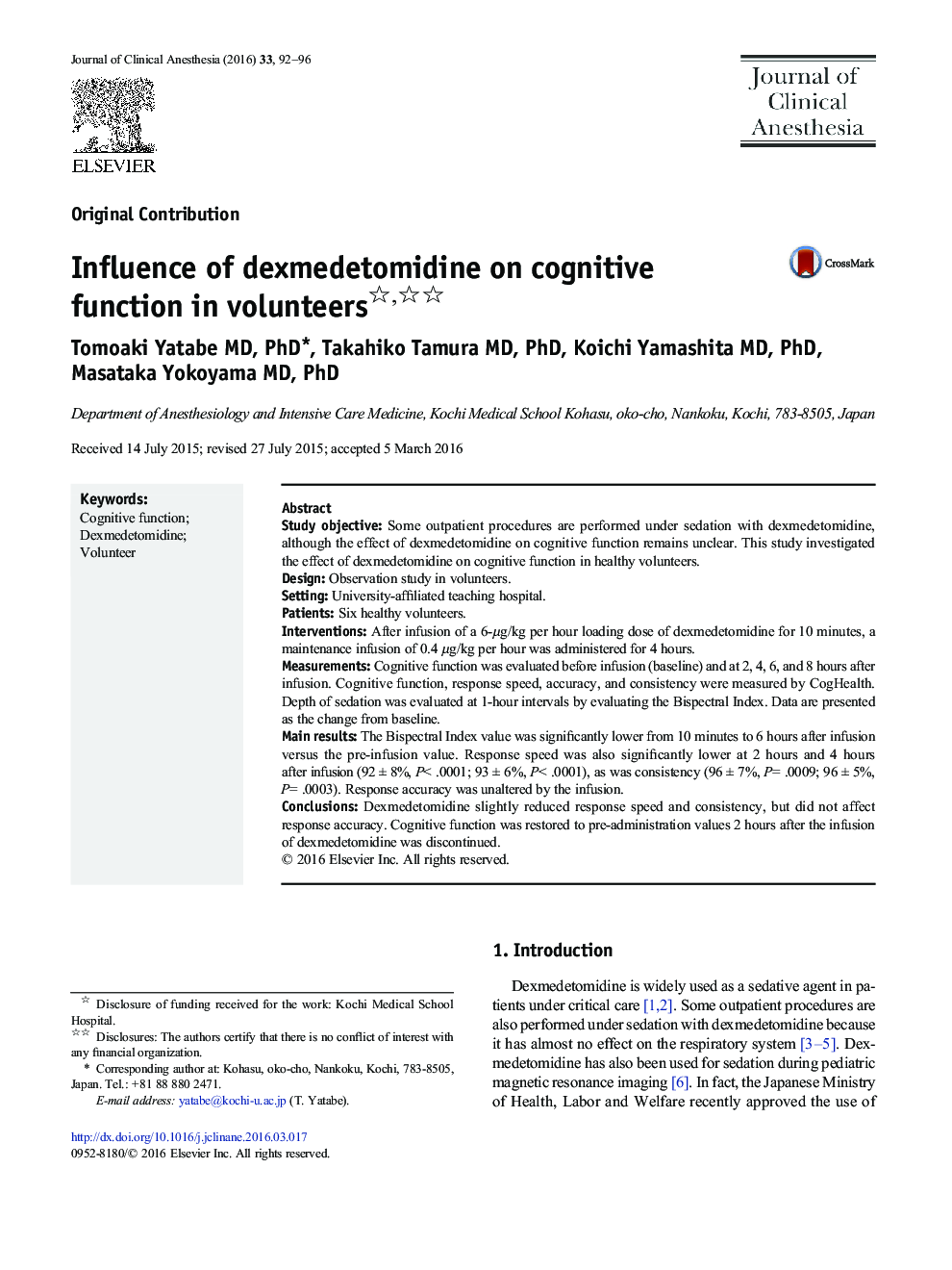| Article ID | Journal | Published Year | Pages | File Type |
|---|---|---|---|---|
| 2762099 | Journal of Clinical Anesthesia | 2016 | 5 Pages |
•This is the first study about between cognitive function and dexmedetomidine in detail.•Response speed and consistency during infusion was lower.•Accuracy of responses did not change during infusion of dexmedetomidine.•Cognitive function recovered 2 hours after the infusion of this drug was discontinued.
Study objectiveSome outpatient procedures are performed under sedation with dexmedetomidine, although the effect of dexmedetomidine on cognitive function remains unclear. This study investigated the effect of dexmedetomidine on cognitive function in healthy volunteers.DesignObservation study in volunteers.SettingUniversity-affiliated teaching hospital.PatientsSix healthy volunteers.InterventionsAfter infusion of a 6-μg/kg per hour loading dose of dexmedetomidine for 10 minutes, a maintenance infusion of 0.4 μg/kg per hour was administered for 4 hours.MeasurementsCognitive function was evaluated before infusion (baseline) and at 2, 4, 6, and 8 hours after infusion. Cognitive function, response speed, accuracy, and consistency were measured by CogHealth. Depth of sedation was evaluated at 1-hour intervals by evaluating the Bispectral Index. Data are presented as the change from baseline.Main resultsThe Bispectral Index value was significantly lower from 10 minutes to 6 hours after infusion versus the pre-infusion value. Response speed was also significantly lower at 2 hours and 4 hours after infusion (92 ± 8%, P< .0001; 93 ± 6%, P< .0001), as was consistency (96 ± 7%, P= .0009; 96 ± 5%, P= .0003). Response accuracy was unaltered by the infusion.ConclusionsDexmedetomidine slightly reduced response speed and consistency, but did not affect response accuracy. Cognitive function was restored to pre-administration values 2 hours after the infusion of dexmedetomidine was discontinued.
